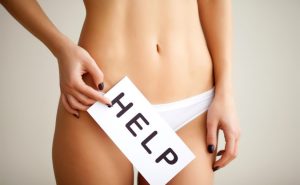Vaginal dryness can impinge on any woman; though it is more prevalent after menopause. It affects over half of post-menopausal women aged between 51 and 60. I am not amazed by a new survey showing that most women over 50 who encounter vaginal dryness do not feel at ease talking to their doctors about it.
 Causes of vaginal dryness vary from physiological factors such as medication side effects or hormonal changes, to psychological and emotional issues such as anxiety or even lack of desire. Luckily, there are a variety of options for dry vagina relief as there are causes.
Causes of vaginal dryness vary from physiological factors such as medication side effects or hormonal changes, to psychological and emotional issues such as anxiety or even lack of desire. Luckily, there are a variety of options for dry vagina relief as there are causes.
There are a number of conditions that can lead to a lack of vaginal lubrication:
Insufficient arousal
In some instances, vaginal dryness may be caused by a low libido or sexual problems with a partner. When a partner has an unfortunate performance and early ejaculation, it can contribute to vaginal dryness.
Medications
Allergies and cold medications that contain antihistamines in addition to asthma medications can have a drying effect inside the body hence result to reduced vaginal lubrication.
 Irritants
Irritants
Some women tend to be allergic to chemicals in dyes, perfumes, soaps and hygiene products. Irritants can also exist on things like towels and underwear. Some allergens can actually include lubricants and objects that may be placed in the vagina.
Anxiety
Emotional and psychological and factors such as anxiety and stress can also wreak havoc on sexual desire and lead to vaginal dryness. This will take place if normal vaginal lubrication doesn’t occur. When a woman gets anxious there is insufficient blood flow hence there is a probability she will experience dryness.
Changes in hormones
One of the most common causes of vaginal dryness is a decrease in estrogen levels during menopause, perimenopause, after childbirth, or during breastfeeding. Cancer treatments such as chemotherapy and radiation to the pelvis can also lead to low estrogen and a decrease in vaginal lubrication. “The vagina depends on estrogen for health,” says Irwin Goldstein, MD, director of Sexual Medicine San Diego, part of Alvarado Hospital in San Diego, Calif.
How to Prevent Vaginal Dryness
1. Avoid personal hygiene sprays. Chemicals contained in the products can be irritating to flimsy tissues that line the vagina.

2. Stay hydrated. Drink 6 to 8 glasses of water on a daily will help keep your tissues moist, including those below the belt.
3. Eat health full amounts of ‘good’ fats. The body needs a little fat with every meal to produce sufficient levels of sex hormones. Flaxseed soy and oil that have estrogen like effects can help to some extent with vaginal dryness.
4. Lubricate. Most women attain instant relief just by using a lubricant. There are as many as possible of these lubricants on drugstore shelves. There is need to experiment in order to find one that works best for you.
5. Consider vaginal suppositories and a topical estrogen cream. They are an alternative if your symptoms are as a result of menopause. However, you will also have to take a progesterone tablet if you have a uterus to protect yourself from endometrial cancer. Bio-identical estrogen and progesterone are available for those women that want chemically identical versions of the hormones made naturally by the body
6. Stop vaginal douching. This practice has the ability of disrupting the vagina’s normal chemical balance hence resulting to inflammation and dryness.









